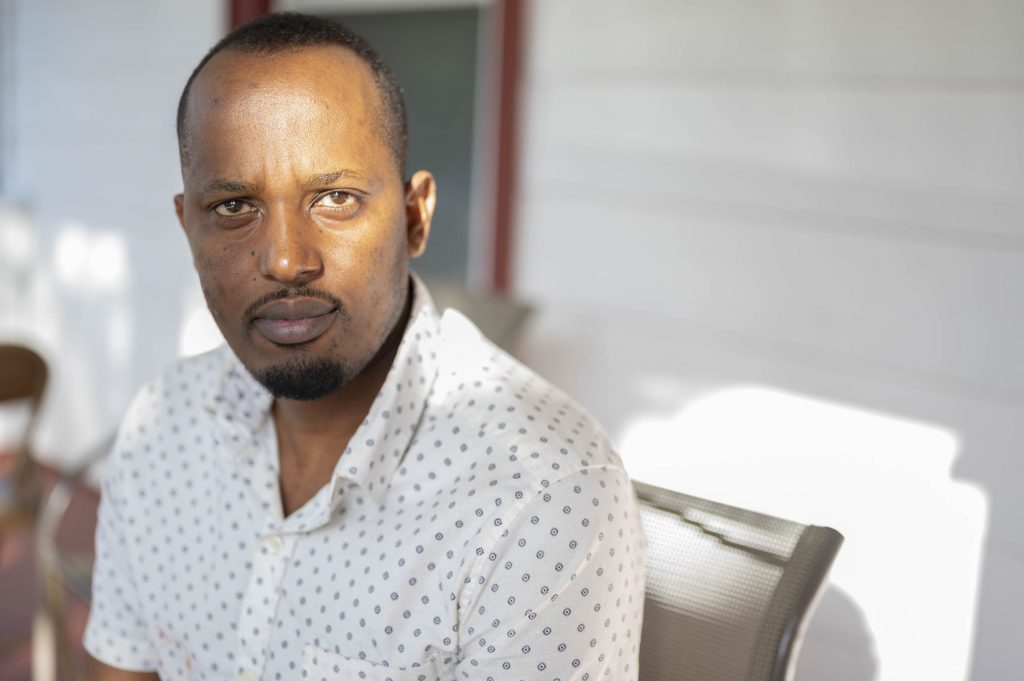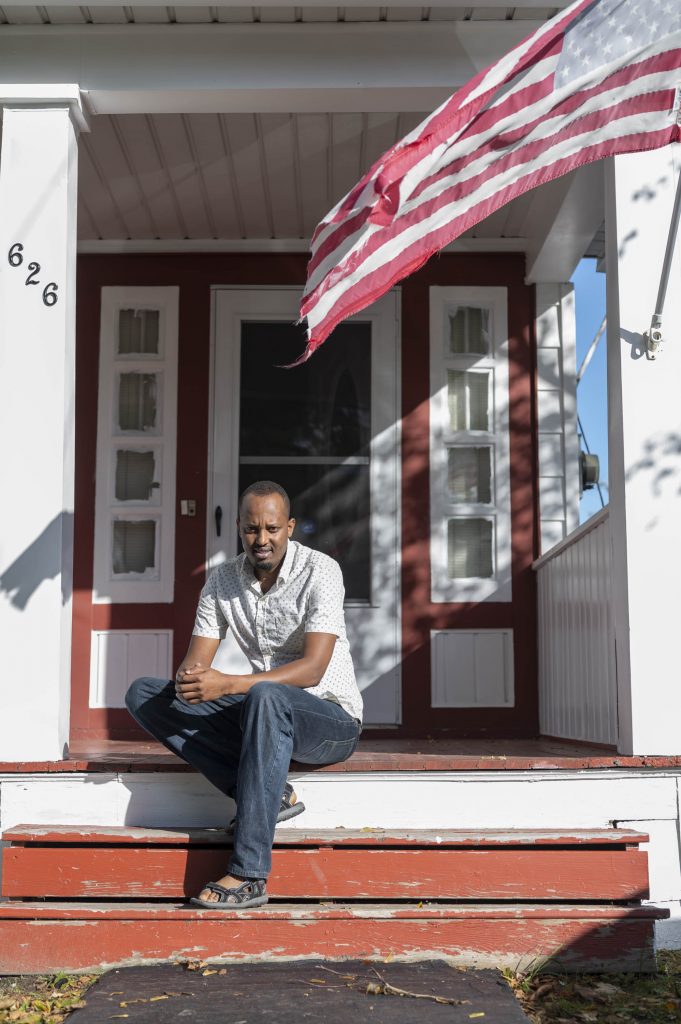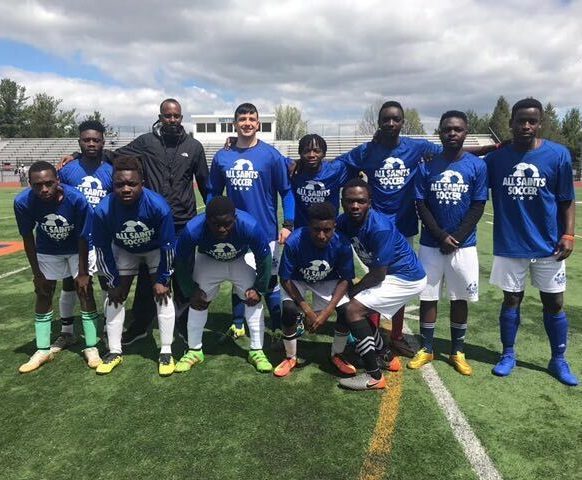SU student, Congolese refugee appointed to human rights panel
SU student, Congolese refugee named to human rights panel

Mbonimpa Banabas spent his teen years in an Ugandan refugee camp, living in a U.N.-provided tent that he built with his own hands. He remembers battling an inundation of mosquitoes, snakes and other animals at the camp.
“They just think you are only refugees,” said Banabas. “They just dump you there and say, ‘This is the place, these are the tents.'”
But in 2008, his family was granted asylum in America. He has called Syracuse home for the past 7 years.
County legislators unanimously confirmed Banabas, 34, as the newest member of the Onondaga County Commission on Human Rights this month. The commission meets monthly to address issues of discrimination in all forms. Banabas was nominated to the commission by 7th district legislator Mary Kuhn.
“Banabas is a great representative for the refugee community,” Kuhn said after Banabas’s confirmation.
In addition to his new spot on the Commission on Human Rights, Banabas works for Allied Universal Security and is perusing a bachelor’s degree in Syracuse University’s creative leadership program. He is the vice president of the Congolese Community Group, a group of community members who work together to address issues in their community.
Kuhn said that she nominated Banabas to the position after working with him through the All Saints Church in Syracuse’s east side. Kuhn said Banabas has been a leader of the growing Congolese community in Syracuse.

Onondaga County resettled 223 refugees in 2018, according to data provided by the New York State Bureau of Refugee Services. More than a quarter of refugees resettled in New York State were Congolese, like Banabas.
Kuhn has worked with Banabas to spread information about COVID-19 to his community, and she says that he has helped contact tracers with translation.
“I hope that he is a voice for the Congolese community on the commission,” Kuhn said.
Parishioners at his church say that Banabas is a leader in his community: A few years ago, he started a boys’ soccer team in his neighborhood. The team not only practices on the weekends, but also get together to volunteer during the week.
Once, when a parishioner’s parent died, the team helped to clean out their house for free. They also have helped people move, fixed homes or cleaned the neighborhood.
The boys have traveled as far as Pennsylvania to play, and they have raised thousands of dollars for their equipment, jerseys and transportation. Banabas said that playing other teams in Onondaga County connects the boys with their community.
Banabas got the idea for the soccer team from his time in Uganda, where he used to play soccer with the other kids in his refugee camp. The experience taught him how to support others.
“In a refugee camp, you learn how to help each other,” Banabas said. “We are all refugees. I don’t have the money, you don’t have the money, but if we put our efforts together, we can work it out.”

Cherie Cogan, a refugee welcoming committee member at All Saints Church, has worked with Banabas for several years.
“His compassion for people is extraordinary,” she said.
Cogan said that Banabas’s phone is constantly ringing from people in the community seeking help and advice. She recalls a call when she and Banabas had to settle a dispute with a landlord over a leaking roof in the middle of winter, ultimately reaching an agreement with the landlord.
“He is really a bridge between different communities,” she said.
Banabas said he hopes to focus on the issues important to his community during his time on the commission. That includes transportation, landlord disputes, education and language accessibility. However, he knows that it will take a community to solve these problems.
“It motivates me that we can do this together,” he said.





